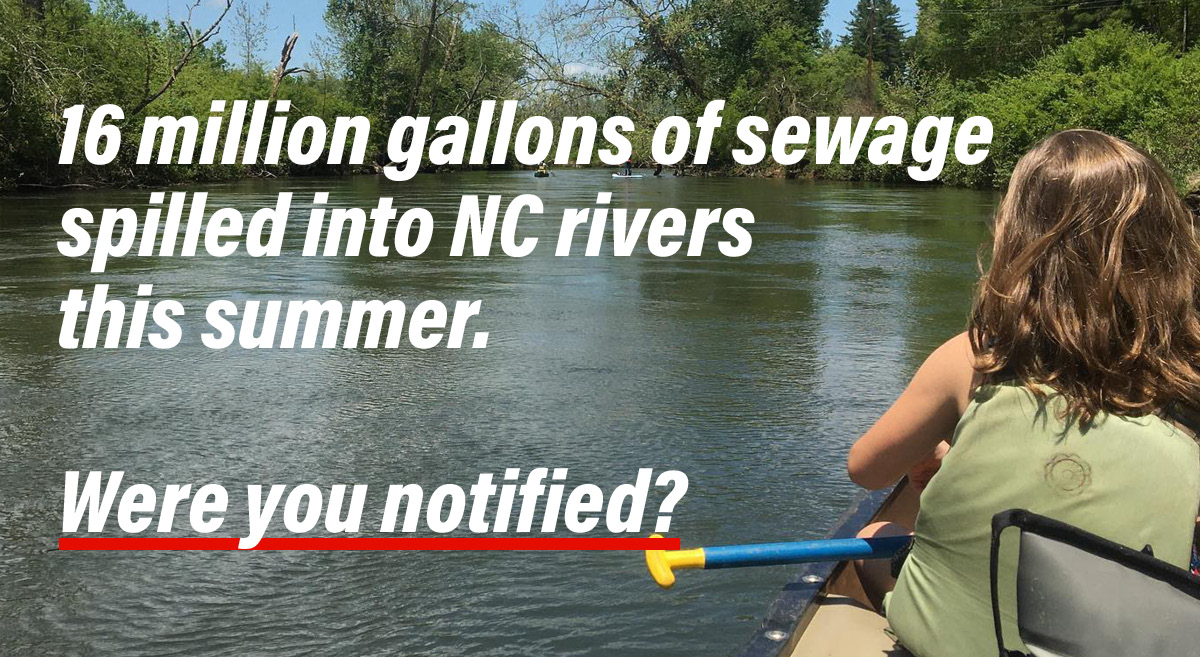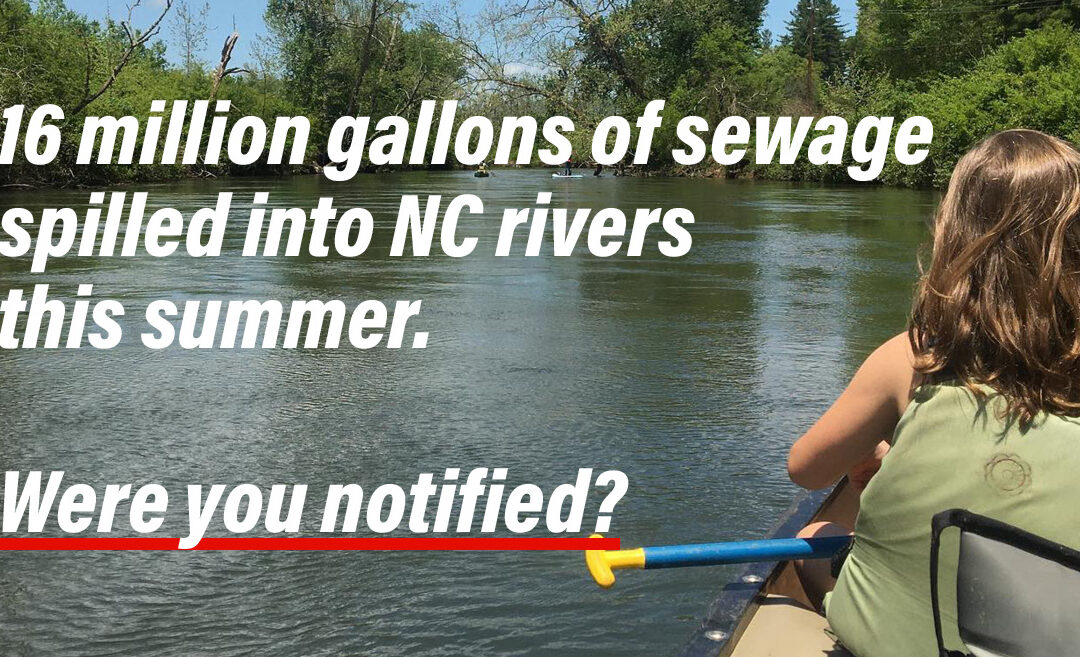16 Million Gallons of Sewage Flowed into NC Waterways This Summer With Little Notification To Paddlers, Swimmers and Beachgoers

North Carolina’s Riverkeepers are calling on state regulators to modernize its public notification system.
North Carolina — Millions of people across North Carolina take to our beaches, rivers and lakes to cool off, swim, paddle, and fish, but most are unaware that nearly 16 million gallons of untreated sewage has spilled into our waterways during a two and a half month period (May 17 to July 30) according to data collected by North Carolina’s Department of Environmental Quality (DEQ).
Call on NCDEQ to Update North Carolina's Spill Notification System
The sewage enters waterways from overflowing manholes and pump stations and leaking sewer pipes, but the public is left largely unaware due to antiquated public notification requirements. North Carolina state law requires operators of wastewater collection and treatment systems to notify DEQ of spills of over 1,000 gallons into surface waters and to send a press release to local media within 24 hours. For spills of over 15,000 gallons, operators are required to place a notice in the newspapers of counties impacted by the spill within 10 days (NCGS 143-215.1C). Spills of other pollutants have similar reporting requirements to DEQ.
“We’re living in the year 2020, and the state of North Carolina is still depending on ads in print newspapers to get the word out about dangerous spills,” says French Broad Riverkeeper Hartwell Carson. “Sending press releases to local papers is not much better. Many local newspapers are only published in print on a weekly or bi-weekly basis, which is not frequent enough to warn river users of water quality problems in a timely manner — if they’re published at all.”
North Carolina Riverkeepers have launched an advocacy campaign at ILoveRivers.org to clean up North Carolina’s waterways and to update the state’s public notification system. “We’re asking the state to adopt a more modern approach, where DEQ would publish spill data to an online database and map as well as on the agency’s social media channels and through email and text alerts to interested parties,” explains Emily Sutton, the Haw Riverkeeper. “People should be able to opt in to receive email and text alerts for their watersheds. We also encourage DEQ to provide water quality notifications on their social media platforms. An improved notification system would help ensure that this critical information gets to the people that most need to know when the river is unsafe.”
E. coli bacteria levels in many North Carolina waterways frequently spike well above the EPA’s safe standard for recreation after rain events. E. coli and other forms of pollution are caused by agriculture and urban stormwater runoff, failing septic systems and overflowing sewer infrastructure. These issues are exacerbated by the effects of climate change, as more frequent and heavier rain events create more storm runoff and overwhelm outdated sewer systems.
Matt Starr, the Upper Neuse Riverkeeper explains that “notification is just the first step, but what we really need are improvements in our state laws that increase fines when sewage is dumped in our waterways. We can’t keep treating our waterways as a sewage disposal system if we ever hope to meet the goals of the Clean Water Act to have all waters be fishable and swimmable.”
|
Department of Environmental Quality (DEQ) Region |
Gallons of Sewage Spilled into Waterways |
| Asheville | 3,214,626 |
| Winston-Salem | 3,260,987 |
| Raleigh | 2,800,681 |
| Washington | 2,616,516 |
| Fayetteville | 2,087,348 |
| Mooresville | 1,620,989 |
| Wilmington | 380,102 |
| TOTAL | 15,981,249 |
Chart represents DEQ regions and the amount of gallons of sewage that reached waterways between May 17, 2020 and July 30, 2020.

